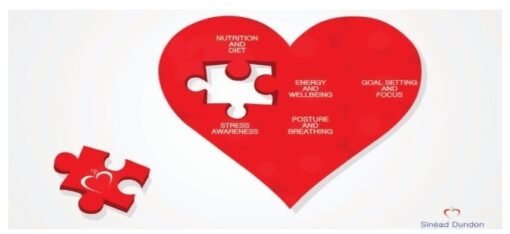Heart Health and Saint Valentine’s Day
As Saint Valentine’s Day approaches, our thoughts often turn to matters of the heart. While this holiday celebrates love and affection, it’s also an opportune time to reflect on the health of our physical hearts—the vital organ that keeps us alive and thriving. In the spirit of love and self-care, let’s explore the connections between heart health, nutrition, and the choices we make for our well-being.
The Nutritionist’s Perspective
As a Nutritionist known as The Tummy Tamer, I specialize in digestive health and wellness. Advocating for natural eating practices, I recommend foods that nourish the body. Additionally, I tailor healthy habits that support optimal function and wellness. One of the intriguing approaches I recommend is eating and exercising according to your Blood Type, a concept popularized by Dr. Peter D’Adamo. This approach suggests that individuals may benefit from specific dietary patterns based on their blood type, enhancing digestion. In addition, satisfied clients report reducing bloating and promoting overall wellness and energy.

Balancing Short-Term Gratification with Long-Term Health
Human behavior plays a significant role in our approach to health and nutrition. As adaptable beings, we often prioritize short-term gratification over long-term well-being. In our youth and vigor, the importance of healthy habits may seem distant. The allure of indulgence and immediate pleasures overshadows the work involved. The societal mantra “You can sleep when you’re dead!” exemplifies this mindset, emphasizing productivity and consumption over self-care and balance. Nurturing vitality and commitment amid short-term urges is key
The Impact of Processed Foods on Heart Health
On a larger scale, national policies and societal norms also influence our dietary choices and health outcomes. The prevalence of commercial food production, which is reliant on environmental pesticides and chemical pollutants for mass-produced ingredients, shapes our food landscape. Highly processed staples like wheat, corn, sugar, and soy, which could be genetically modified, flood our diets. Nutritionists and dietitians continue to research and see processed foods as contributors to the rise of chronic diseases such as heart disease and diabetes in their patients and clients.
Research Insights: Processed Foods and Cardiovascular Health
In modern society, processed foods have become ubiquitous, and South Korea’s consumption of processed foods is very high. A study published in February 2024 aimed to investigate the associations of minimally processed foods (MPF) and ultra-processed foods (UPF) intakes with cardiovascular health (CVH). Researchers used data from the sixth Korean National Health and Nutrition Examination Survey. The results have shown that the more processed a food is, the more negative impact it can have on cardiovascular health. Therefore, researching the effects of processed foods on the human body can increase understanding of population health. This can aid in the development of prevention and treatment strategies.
Embracing Long-Term Vitality
While the short-term gains of industrialized food production in reducing costs may seem beneficial in times of financial struggles, the long-term consequences are profound. When a nation prioritizes economic benefits and subsidies over public health, this could perpetuate a cycle of overconsumption and compromised well-being. The true cost of our dietary choices manifests in rising healthcare expenditures and a population burdened by preventable diseases.
Celebrating Heart Health on Saint Valentine’s Day
As we celebrate Saint Valentine’s Day, let us re-frame our approach to heart health and wellness. Instead of succumbing to short-term temptations, let’s prioritize the long-term vitality of our bodies and minds. Embracing healthy eating practices means nourishing our bodies with wholesome foods. Cultivating daily balance is an act of self-love that resonates far beyond the confines of a single holiday.
Conclusion: Cherishing Heart Health
In conclusion, Saint Valentine’s Day serves as a timely reminder to cherish our hearts—both metaphorically and physiologically. By honoring our bodies with nutritious choices and mindful behaviors, we lay the foundation for a lifetime of vitality and well-being. Let us celebrate love in all its forms, including the love we show ourselves through conscious health practices and nourishing lifestyles.
As we navigate the complexities of modern living, may our hearts beat strong with every nourishing choice we make, today and every day. Happy Saint Valentine’s Day to you and your heart!
Reference:
Kim L, Choi YH, Huh DA, Moon KW. Associations of minimally processed and ultra-processed food intakes with cardiovascular health in Korean adults. The Korea National Health and Nutrition Examination Survey (KNHANES VI), 2013–2015. J Expo Sci Environ. Epidemiol. 2024 Feb 2. doi: 10.1038/s41370-024-00646-1. Epub ahead of print. PMID: 38307938.



Do you know your blood type? Sinéad can test it for you in Adare Pharmacy, Co Limerick or New Leaf Health food shop Charleville Co Cork